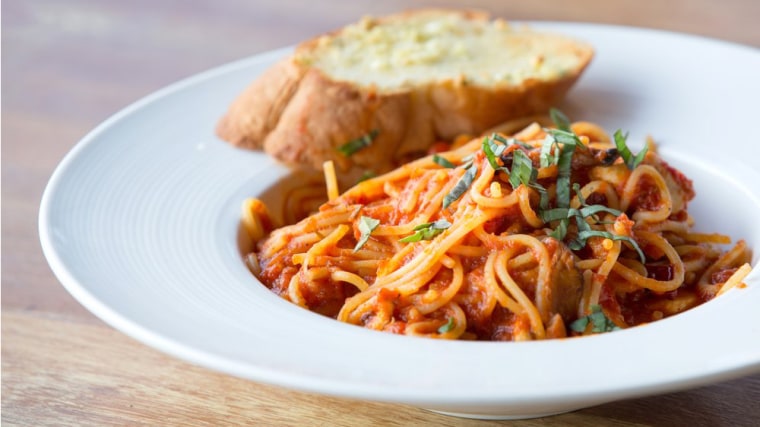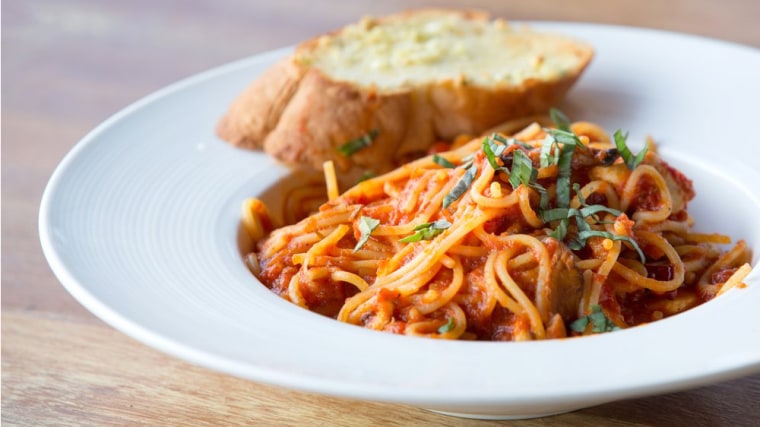You might have seen reports floating around that reheated pasta is "diet-friendly," and healthier for you than its freshly cooked counterpart.
A story in The Independent claimed that, based off a study on the U.K. television show "Trust Me, I'm a Doctor," cooling and reheating pasta turned the carbohydrate into a "resistant starch," which, compared to sugar, lowers blood glucose levels and helps the body feel fuller longer.

But is it really that simple? Do we just have to cool and reheat our pasta, and not worry about carbs from pasta forever? We talked to NBC nutrition editor and doctor of nutrition sciences Madelyn Fernstromto get the facts on fusilli (and other pastas).
The "study" is really small
The UK show, "Trust Me, I'm a Doctor," tested nine people's glucose levels after eating a variety of meals, and found that glucose levels were lower after reheated pasta. But only testing that many people is both not representative of the population, and also not a large enough sample size to yield statistically valid results. "Nine people does not make a study - it's far too small to make any evidence-based claims," Fernstrom said.
Resistant starches aren't exactly 'new'
The study found that cooling and heating pasta makes the pasta more resistant to enzymes in the gut that break down carbs and release glucose. This "resistance," however, isn't exactly new, even in pasta. "'Resistant starch' is a well-known food component, can be classified as a type of fiber," Fernstrom said. "It's found in multiple foods, including cooked pasta."
The amount of resistant starches in pasta aren't significant
"While it makes 'theoretical sense' that cooked pasta might boost weight loss because it has more resistant starch, when translated to reality, it is highly unlikely to boost a weight loss effort as a standalone," Fernstrom said. "The amount of resistant starch produced in a cup of cooked pasta is about 2 grams - roughly the fiber in half an apple. Hardly a powerhouse effect."
Reheated pasta will still have the same calories as regular pasta
While the type of starches might be slightly altered with reheated pasta, the number of calories consumed will still be exactly the same. "One cup of pasta - cooked or reheated —still has about 200 calories," Fernstrom said.
Bottom line: While reheated pasta, and the resistant starches they create, might be a little healthier than cooked pasta, it's hardly a miracle solution. Just like most things we consume, moderation is key. "Be a savvy consumer," Fernstrom said. "Limit your serving to 1 cup - and count your total calories. There's no magical weight loss properties to cooked pastas."
